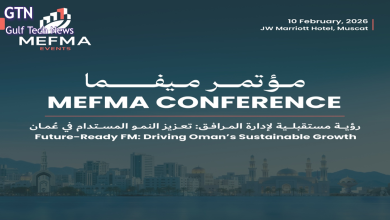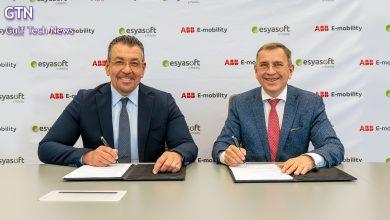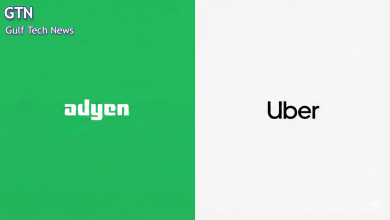Focused and Future-Ready the Middle East M&A Market Drives Economic Diversification

- Outbound M&A from Middle Eastern investors remains strong, with high levels since 2021 driven by technology, logistics, and renewable energy investments.
- Middle East deal volume rose 7% in the first nine months of 2024, contrasting with a global decline of 13%.
- Global deal values rose 10% in the first nine months of 2024, marking a steady recovery across regions, according to BCG’s 21st Annual M&A Report.
Middle Eastern mergers and acquisitions (M&A) continue to forge ahead with resilient investment and a strong focus on economic diversification.
According to BCG’s 2024 M&A Report, Middle East deal volume rose 7% in the first nine months of 2024, even as global deal volume declined by 13%. Middle Eastern investors are expanding into crucial sectors like logistics, energy, and advanced technology, reflecting the region’s commitment to a diverse, future-ready economy.
Despite a cautious global outlook, energy, financial services, and technology companies are pushing forward with strategic deals that promise to reshape industries.
At the same time, increased transactions in consumer sectors reflect a rising appetite for transformative deals. Sectors such as healthcare, technology, and energy are expected to drive M&A activity in the months ahead.
Strategic Growth Across Key Sectors in Middle East M&A
Middle Eastern dealmakers focus on high-value acquisitions across critical sectors, aligning with regional economic diversification strategies. Noteworthy sector investments include:
- Industrial and Logistics: The logistics sector is seeing continued growth, with a recent $1 billion acquisition by a UAE-based energy player, enhancing supply chain infrastructure. The industrial sector also saw a $3.2 billion bid in engineering, indicating sustained interest in expanding industrial capacities.
- Technology and Telecommunications: Technology assets are increasingly central to Middle Eastern M&A. Prominent transactions include a $2.6 billion acquisition in satellite communications and a $250 million investment in telecommunications in Africa. Additionally, a $350 million investment in energy-focused AI demonstrates the region’s commitment to digital and AI-driven transformation.
- Energy and Renewables: The region’s traditional strength in energy is evolving to include renewables, with a significant $2.7 billion renewable energy transaction reflecting this shift. Middle Eastern oil companies, including national oil players, remain actively engaged in monetizing and optimizing downstream assets, further diversifying their energy portfolios.
“The Middle East’s M&A landscape demonstrates intentional growth and resilience,” said Samuele Bellani, Managing Director & Partner at BCG. “ Investors in the region are strategically targeting sectors such as technology, logistics, and renewable energy to align with the region’s goals for economic diversification.
By making strategic, high-impact acquisitions, Middle Eastern firms are well-positioned to support the long-term transformation of the regional economy.”
Outlook for M&A in the Middle East
The Middle East’s M&A activity is shaped by a strategic focus on outbound investment, economic diversification, and resilience amid global shifts.
With backing from sovereign wealth funds and strong capital reserves, investors in the region are targeting acquisitions in sectors like AI, telecommunications, and logistics, supporting a move beyond oil and gas dependencies.
As geopolitical complexities and regulatory scrutiny intensify, Middle Eastern firms carefully select M&A opportunities that align with their growth objectives, balancing expansion with a measured approach to risk.
AI-Enabled Tools Enhance M&A Processes
Advances in AI-enabled tools are now integral to M&A, streamlining the entire deal lifecycle, from target identification to due diligence and integration.
AI-based solutions improve productivity and accuracy, rapidly analyzing structured and unstructured data to support quicker decision-making in an increasingly complex landscape.
Virtual data rooms equipped with AI-driven contract redaction and information extraction capabilities enhance documentation workflows, a critical factor during complex M&A negotiations. These digital advancements are essential as Middle Eastern firms position themselves to navigate today’s evolving M&A landscape effectively.
“As the next wave of M&A builds, Middle Eastern investors are demonstrating their preparedness with strategic investments in technology and talent,” added Samuele Bellani, Managing Director & Partner at BCG.
“In this period of relative calm, proactive preparation will separate successful dealmakers from those caught off guard. With AI-powered tools transforming the M&A process, the most prepared firms will shape the future of M&A by combining digital efficiencies with bold, forward-thinking acquisitions.”
The Middle East’s M&A landscape is set for steady growth, driven by strategic investments and diversification efforts that respond to evolving global dynamics. As regulatory changes alter the playing field, dealmakers will need to adapt their approaches, from building pipelines to planning execution, to navigate longer closing periods and increased scrutiny.
In this rapidly changing environment, successful dealmakers will stand out by effectively pitching deals, managing complexities, and staying agile in the face of new challenges.





